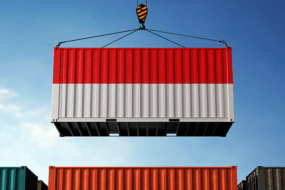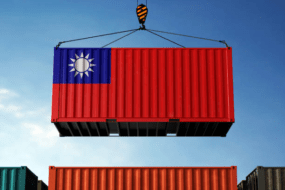- Home
- Trade News
- India’s Rice Export Ban ...

In the intricate realm of global food supply and demand, even seemingly isolated events can reverberate through the entire system. India’s abrupt ban on rice exports, specifically non-basmati white rice and broken rice, enforced on July 20th, has sounded alarm bells worldwide. This move holds far-reaching implications for the global rice market and the broader agricultural landscape.
The Significance of Rice in Global Food Security
To grasp the gravity of India’s export ban, we must first acknowledge rice’s paramount importance as a staple food for over three billion people across the globe. In recent years, India emerged as the largest exporter of rice, contributing approximately 20 million tons in 2022. Thailand and Vietnam follow closely with 7.5 and 6.7 million tons, respectively. The sudden removal of India from the list of rice exporters has compounded the challenges already faced by the global rice market.
Ripple Effects from Global Conflicts and Climate Phenomena
Since September 2022, the global food market has experienced significant stress due to the ongoing war between Russia and Ukraine. This geopolitical conflict has led to soaring prices for various grains, including rice. The world has witnessed how these escalating prices have affected food security and accessibility for millions.
Adding another layer of complexity is the El Niño climate phenomenon, renowned for its unpredictable weather patterns. It is expected to impact agricultural yields across different crops, including rice, palm oil, sugar cane, and rapeseed. Poorer harvests in multiple countries are likely to strain agri-food value chains, creating a precarious situation for 2024. Both major exporting nations like Australia, Brazil, and the U.S., as well as populous regions aiming for self-sufficiency in food, such as China and India, will feel the pressure on supply.
The Looming Challenge: Supply vs. Demand
The combination of India’s rice export ban, ongoing global conflicts, and climate-related disruptions has created a looming challenge: a growing divide between supply and demand in the food sector. As disruptions continue to ripple through the food supply chain, the consequences could be dire.
The pressure on supply will be twofold. Not only will major exporting countries face difficulties in meeting international demand, but densely populated regions that heavily rely on food imports will also feel the strain. This situation raises the specter of rising food prices in the coming year, creating a domino effect that touches the lives of individuals and economies around the world.
A Parallel to the AdBlue Shortage
The potential rise in food prices in 2024 is reminiscent of the AdBlue shortage experienced in previous years. Just as the shortage of AdBlue—an essential fluid for diesel engines—impacted various industries and transportation, an increase in food prices could have cascading effects on economies, food security, and social stability.
In Conclusion
India’s export ban on rice serves as a stark reminder of the interconnectedness of the global food supply chain. It is a call to action for nations to prioritize sustainable agricultural practices, strengthen food security measures, and work collaboratively to mitigate the challenges posed by global conflicts and climate phenomena. The year 2024 holds the potential for extreme tension between supply and demand in the food sector, making it imperative for the world to prepare for the uncertainties that lie ahead.
The most trustable and reliable source for Trade Data.
TradeData.Pro is a reliable and trustworthy source of trade data proudly made in Singapore, a country known for its stable political climate and trade-driven economy. Presented by Commodities Intelligence Centre, a government-linked company and a joint venture of Zall Smartcom, SGX, and GeTS, TradeData.Pro has received positive feedback from the market since its launch in 2018 for its extensive coverage, affordability, and fast response. The platform has been awarded the Singapore Quality Class in 2020 and the Stevie Award Gold in 2021.
Traditionally, obtaining critical data to reveal trends, identify market opportunities, track competitors, buyers, and suppliers, and better understand the potential of the supply chain has been a challenge. However, the detailed shipment information that is part of government import and export filing requirements does exist and forms the core of global trade. TradeData.Pro has gathered and packaged this information as business intelligence, which helps companies understand the flow of goods across borders and features the world’s largest searchable trade database. TradeData.Pro reviews, standardizes, and cleans data and delivers it in an intuitive format, making it easier for businesses to access.
Businesses interested in staying updated on Vietnam, the hottest industry lately, can access all relevant information on the TradeData.Pro platform. They can find the exact product they’re interested in by checking out the trade database demo at https://tradedata.pro/asia-trade-data/vietnam-import-export-data/. To learn more about accessing new markets, visit https://tradedata.pro/trade-database-demo/.
Additionally, businesses can check out this article to learn how to use TradeData.Pro to access Global Trade Markets: https://blog.tradedata.pro/v3-new-upgrade-of-world-leading-global-trade-data-platform/. To understand how TradeData.Pro works, watch the video below or visit https://www.youtube.com/watch?v=tITfUvjs6Gc
Business Economy Export Global Import India International Trade Markets Opportunities Supplier Trade Data Pro Worldwide
Leave a Reply Cancel reply
Recent Posts
Archives
- June 2025
- May 2025
- April 2025
- March 2025
- February 2025
- January 2025
- December 2024
- November 2024
- April 2024
- March 2024
- January 2024
- December 2023
- November 2023
- October 2023
- September 2023
- August 2023
- July 2023
- June 2023
- May 2023
- April 2023
- March 2023
- February 2023
- January 2023
- December 2022
- November 2022
- October 2022
- September 2022
- August 2022
- July 2022
- June 2022
- May 2022
- April 2022
- March 2022
- February 2022
- January 2021
Categories
Recent Post
Indonesia Exports: Sunny Outlook Despite Coal, US
- June 30, 2025
- 9 min read
Taiwan Exports: Hitting Record Highs in Challenging
- June 30, 2025
- 7 min read
Forecasting a Brighter Outlook for Chile Imports
- May 30, 2025
- 8 min read
All Tags
Agriculture Automotive Brazil Business Business Opportunities Buyers China Coffee Commodities Crops Ecommerce Economic Economy Electronics Energy Environmental Europe Export Exports Future Garments Global Import India Industries International Trade Leads Leads Generation manufacturing Markets Opportunities Pharmaceuticals Prices Rice Russia Supplier Textiles Trade Trade Data Trade Data Pro Turkey Ukraine United States Vietnam Worldwide









2 replies on “India’s Rice Export Ban and Global Food Security Concerns”
[…] If you want to read more about India’s rice export ban, click on this link. […]
[…] India’s import ban details here, and discover how Southeast Asia is tackling these challenges in the previous […]